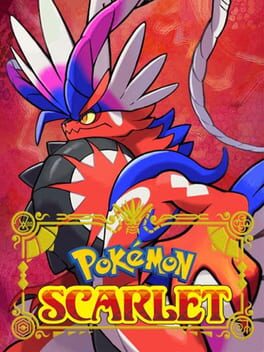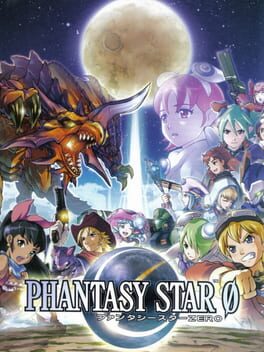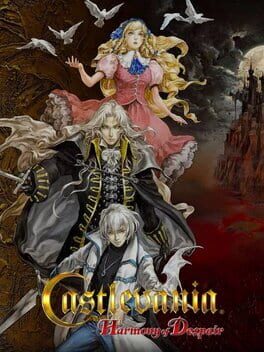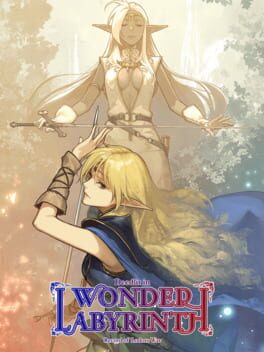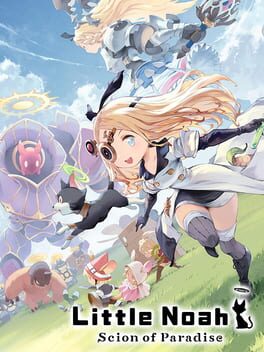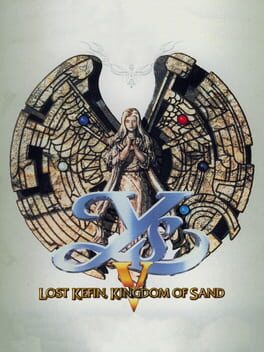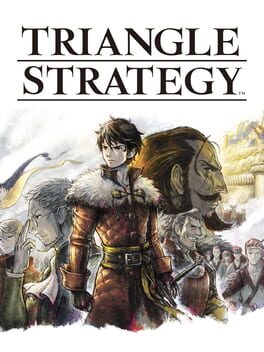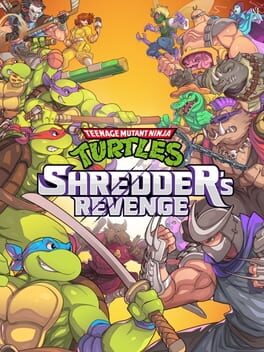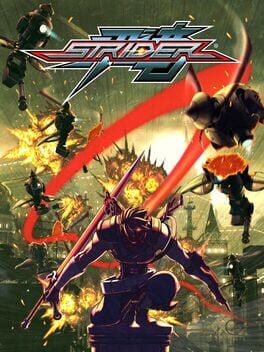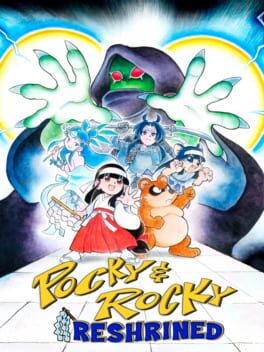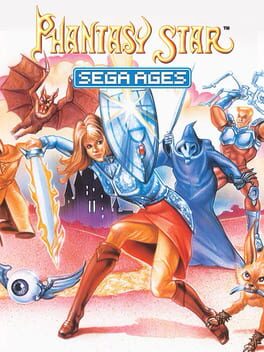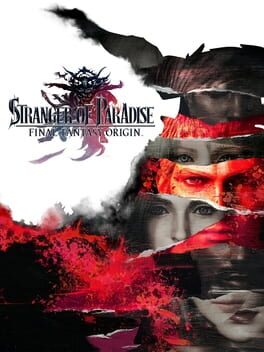ArrenSol
2023
Hi-Fi Rush is nothing short of the highest-tier work from the team at Tango Gameworks.
HFR understands what makes both character action games and rhythm games so entertaining, and then does an impeccable job of blending them almost seamlessly. Attacks, parries, and movement are all tied directly into the beats of a well-curated and reasonably eclectic rock soundtrack (featuring a handful of licensed music tracks) and even if players struggle to stay in time with the music, protagonist Chai's actions still sync up, making overall harmony prevail over a pressing need for perfection.
That's all without saying basically anything about the game's audiovisual flair. Environments are PACKED with active detail, with plenty of moving parts; a ton of stage backdrops, objects and even ambient sound effects (in AND out of cutscenes!) sync to the music, injecting the locales of the Vandalay campus with life.
That life extends to Hi-Fi Rush's endearing cast, from lovable idiot Chai to a stellar supporting cast of heroes with their own quirks and abilities. Despite a fairly compact run time, everybody gets their moment (even some wonderfully-played dramatic ones!), and villains are packed with some larger-than-life personalities (though you could say that about most of the cast). Expect a ton of goofiness from the game's script -- it's not afraid to poke fun at itself, its surroundings, corporate culture, a real world meme or two (don't worry, they don't feel out of place), and even other games -- and you'll be alright.
Of course, all of Hi-Fi Rush's merits are intrinsically connected to the strength of its soundtrack, a rock-centric affair that covers a few different styles and tones accompanied by Chai's guitar strikes. Licensed tracks from the likes of huge acts like Nine Inch Nails and The Black Keys punctuate the game's grander set pieces, but even the original work from composer trio Shuichi Kobori, REO (Reo Uratani) and Masatoshi Yanagi carries Chai from zone to zone with confidence. I'd argue some of the originals hit harder than the licensed set pieces, although one in particular sticks out as probably my favorite ever use of a preexisting licensed song in a video game.
Honestly, I'm still sort of in disbelief that Tango Gameworks and publisher Bethesda decided they'd randomly drop a RHYTHM game in the middle of the week at the tail end of January and it would be so affecting. I got all the same warm-and-fuzzies I got playing Gitaroo Man for the first time -- ultimately, I guess they both are about a rudderless kid finding his confidence -- and the gameplay part itself was just so engrossing I found myself immediately wanting to go back after wrapping up the main story to tackle some of the surprisingly meaty post-game challenges.
Games like this just don't come up very often. Don't miss it.
HFR understands what makes both character action games and rhythm games so entertaining, and then does an impeccable job of blending them almost seamlessly. Attacks, parries, and movement are all tied directly into the beats of a well-curated and reasonably eclectic rock soundtrack (featuring a handful of licensed music tracks) and even if players struggle to stay in time with the music, protagonist Chai's actions still sync up, making overall harmony prevail over a pressing need for perfection.
That's all without saying basically anything about the game's audiovisual flair. Environments are PACKED with active detail, with plenty of moving parts; a ton of stage backdrops, objects and even ambient sound effects (in AND out of cutscenes!) sync to the music, injecting the locales of the Vandalay campus with life.
That life extends to Hi-Fi Rush's endearing cast, from lovable idiot Chai to a stellar supporting cast of heroes with their own quirks and abilities. Despite a fairly compact run time, everybody gets their moment (even some wonderfully-played dramatic ones!), and villains are packed with some larger-than-life personalities (though you could say that about most of the cast). Expect a ton of goofiness from the game's script -- it's not afraid to poke fun at itself, its surroundings, corporate culture, a real world meme or two (don't worry, they don't feel out of place), and even other games -- and you'll be alright.
Of course, all of Hi-Fi Rush's merits are intrinsically connected to the strength of its soundtrack, a rock-centric affair that covers a few different styles and tones accompanied by Chai's guitar strikes. Licensed tracks from the likes of huge acts like Nine Inch Nails and The Black Keys punctuate the game's grander set pieces, but even the original work from composer trio Shuichi Kobori, REO (Reo Uratani) and Masatoshi Yanagi carries Chai from zone to zone with confidence. I'd argue some of the originals hit harder than the licensed set pieces, although one in particular sticks out as probably my favorite ever use of a preexisting licensed song in a video game.
Honestly, I'm still sort of in disbelief that Tango Gameworks and publisher Bethesda decided they'd randomly drop a RHYTHM game in the middle of the week at the tail end of January and it would be so affecting. I got all the same warm-and-fuzzies I got playing Gitaroo Man for the first time -- ultimately, I guess they both are about a rudderless kid finding his confidence -- and the gameplay part itself was just so engrossing I found myself immediately wanting to go back after wrapping up the main story to tackle some of the surprisingly meaty post-game challenges.
Games like this just don't come up very often. Don't miss it.
2022
Scarlet is a wonderfully written, pretty well-balanced Pokemon title with a few challenges and a surprisingly charming campaign.
Despite what anyone might tell you about how buggy and messed up a bunch of it is, it's still a really easy recommend if you at all still enjoy catching and battling critters. If you're a stickler for performance, Scarlet/Violet will leave quite a bit to be desired, but beyond that you're in for quite the adventure.
Despite what anyone might tell you about how buggy and messed up a bunch of it is, it's still a really easy recommend if you at all still enjoy catching and battling critters. If you're a stickler for performance, Scarlet/Violet will leave quite a bit to be desired, but beyond that you're in for quite the adventure.
2008
So, full disclosure, I played this on release in 2008, having been uncontrollably hyped for a new PS something-or-other. That I didn't even come close to matching my absurd PSO game time says little to nothing about Zero's quality, though -- PSZ is an impressive entry in the modern Phantasy Star lineup, even before taking into consideration the size and limitations of the platform on which it was released.
Zero stands as sort of a soft reboot for the "Online" era, not that it really needed one; the three playable races (Humans, Newmans, and CASTs) all have slightly different perspectives on the main tale, concerning a massive apocalyptic event that rocked the planet Coral some 200 years before the game's start. I wouldn't expect too much of its decidedly Saturday morning beats, but it pulls together a decent framework for an engaging looter-RPG, with some enjoyable NPCs and a couple neat (if predictable) twists and turns.
Rocking character designs by Toshiyuki Kubooka of Lunar series fame, PSZ is a little bit of a visual departure from the hi-fi sci-fi look of Online and Universe, opting for a striking Future Western aesthetic that sets Zero apart from its relatives. The game's 7-plus biomes (if you count the post-game gauntlet) are all quite varied and don't stale quickly, but music can be a mixed bag; dynamic zone themes (much akin to PSO) are often okay blending into the background and downplay their own impact. That said, Zero's a wonderfully vivid and clean 3D game, especially considering this is probably pushing the original DS to its visual limits.
It's not just visuals, though; the general limits of the DS just don't really seem at all like a factor for gameplay or scope either. At times, Zero plays like a wonderfully handheld Phantasy Star Online, and at others, it adds to an already-solid base experience. Zero introduces dodge rolls and Universe's Photon Arts to the core PSO style, turning it into an interesting blend of old and new. Toss in some new weapon types and tons of sweet, sweet loot and you've got yourself one hell of a good time packed with a bunch of stuff to discover.
I know a lot of this can be chalked up to how strong the nostalgia goggles can be, but if you're looking for something similar to the old PSO style and Universe just didn't do it for you, you could do much worse than trying out Zero one way or another -- it's a brilliant take on the formula and one of my personal favorite looter RPGs.
Zero stands as sort of a soft reboot for the "Online" era, not that it really needed one; the three playable races (Humans, Newmans, and CASTs) all have slightly different perspectives on the main tale, concerning a massive apocalyptic event that rocked the planet Coral some 200 years before the game's start. I wouldn't expect too much of its decidedly Saturday morning beats, but it pulls together a decent framework for an engaging looter-RPG, with some enjoyable NPCs and a couple neat (if predictable) twists and turns.
Rocking character designs by Toshiyuki Kubooka of Lunar series fame, PSZ is a little bit of a visual departure from the hi-fi sci-fi look of Online and Universe, opting for a striking Future Western aesthetic that sets Zero apart from its relatives. The game's 7-plus biomes (if you count the post-game gauntlet) are all quite varied and don't stale quickly, but music can be a mixed bag; dynamic zone themes (much akin to PSO) are often okay blending into the background and downplay their own impact. That said, Zero's a wonderfully vivid and clean 3D game, especially considering this is probably pushing the original DS to its visual limits.
It's not just visuals, though; the general limits of the DS just don't really seem at all like a factor for gameplay or scope either. At times, Zero plays like a wonderfully handheld Phantasy Star Online, and at others, it adds to an already-solid base experience. Zero introduces dodge rolls and Universe's Photon Arts to the core PSO style, turning it into an interesting blend of old and new. Toss in some new weapon types and tons of sweet, sweet loot and you've got yourself one hell of a good time packed with a bunch of stuff to discover.
I know a lot of this can be chalked up to how strong the nostalgia goggles can be, but if you're looking for something similar to the old PSO style and Universe just didn't do it for you, you could do much worse than trying out Zero one way or another -- it's a brilliant take on the formula and one of my personal favorite looter RPGs.
[For the sake of logging a game as "done", I finished the main (non-DLC) 6 stages with a group of three.]
At this game's ABSOLUTE worst, you're playing some pretty true-to-form Castlevania with an arcadey twist. Truly timeless gameplay with a KILLER arranged soundtrack. I'm honestly surprised it held up so well for being some off-genre release from the old Xbox Live days. It's rich with replayability, with a number of characters to choose from, some solid DLC choices, and loot drops galore.
I can't recommend playing this game enough, but ONLY if you have at least a couple people around to play it with. It's cross-compatible between every Xbox console it's playable on, so if you only have a 360 and your buddy has a Series S/X, you're still good to go.
Now if you'll excuse me, I have to go start a little prayer circle for some kind of updated port...
At this game's ABSOLUTE worst, you're playing some pretty true-to-form Castlevania with an arcadey twist. Truly timeless gameplay with a KILLER arranged soundtrack. I'm honestly surprised it held up so well for being some off-genre release from the old Xbox Live days. It's rich with replayability, with a number of characters to choose from, some solid DLC choices, and loot drops galore.
I can't recommend playing this game enough, but ONLY if you have at least a couple people around to play it with. It's cross-compatible between every Xbox console it's playable on, so if you only have a 360 and your buddy has a Series S/X, you're still good to go.
Now if you'll excuse me, I have to go start a little prayer circle for some kind of updated port...
I went into this game knowing next to nothing about what goes on in the greater Record of Lodoss War series, but that didn't stop me from having a hell of a time with a wonderfully-crafted, mechanically rich metroidvania game.
DIWL is at its best when making extensive use of its Ikaruga-like "polarity" mechanic, which allows Deedlit to swap between wind and fire elements to both absorb enemy attacks and exploit weaknesses. My only real gripe about the system is that it doesn't really get utilized until you're quite deep into the game, and once you really start getting the flow of switching to handle rooms with clever enemy formations, it's all but over. Bosses in particular shine bright, with one early encounter in particular driving the point home with style. I think the game could've benefited quite greatly from more keenly emphasizing that mechanic in general platforming challenges or traversal, but the promise was there and executed quite well.
Story, sound design and visuals are all top-notch. Despite having never touched any Record of Lodoss War media, the game doesn't really need a ton of prior information to enjoy; it manages to tell a pretty sentimental story over a pretty reasonably short runtime. If anything, I'm looking forward to checking out more of the series now that I've got a very (wonderfully wistful) taste of the world of Lodoss Island.
Easy recommend if you're a fan of metroidvania games. Runs about the length of a GBA Castlevania game -- titles I've also reviewed as part of the Castlevania Advance Collection :)
DIWL is at its best when making extensive use of its Ikaruga-like "polarity" mechanic, which allows Deedlit to swap between wind and fire elements to both absorb enemy attacks and exploit weaknesses. My only real gripe about the system is that it doesn't really get utilized until you're quite deep into the game, and once you really start getting the flow of switching to handle rooms with clever enemy formations, it's all but over. Bosses in particular shine bright, with one early encounter in particular driving the point home with style. I think the game could've benefited quite greatly from more keenly emphasizing that mechanic in general platforming challenges or traversal, but the promise was there and executed quite well.
Story, sound design and visuals are all top-notch. Despite having never touched any Record of Lodoss War media, the game doesn't really need a ton of prior information to enjoy; it manages to tell a pretty sentimental story over a pretty reasonably short runtime. If anything, I'm looking forward to checking out more of the series now that I've got a very (wonderfully wistful) taste of the world of Lodoss Island.
Easy recommend if you're a fan of metroidvania games. Runs about the length of a GBA Castlevania game -- titles I've also reviewed as part of the Castlevania Advance Collection :)
For a guy with so much to say about the stuff I play, I'm actually kinda loath to really talk about things I love dearly; aside from the possibility of setting some unreasonable expectations from friends or readers who may be disappointed after playing something I wholeheartedly recommend, I also can't help but feel like maybe something's too good to be true, that I'm not being critical enough, that I've overlooked something that everyone thinks is just awful. Lately, it's made me feel generally more cautious when I talk something up.
I think Xenoblade 3 is about to undo a lot of that. I adore this game. It has some (very superficial) things I think could've been improved or better utilized, but on a whole it's my favorite JRPG in a veeeeeeery long time. It's still very early -- I understand I'm writing this no less than like 10 days after the game's release -- but I'm not sure what the last game was that I played that was so affecting, so beautifully choreographed (this game's cutscene direction and music is some of the best in the industry, no lie), so touching and tragic and full of all different manner of meaning. The closest thing I can really think of, to be honest, is Final Fantasy XIV, but unlike FFXIV this particular game is not what I'd consider a culmination of now-9 years of brilliant setplay and storytelling; it's simply an expertly-told, considerably self-contained story that doesn't rely on a revolving door of callbacks and canon tricks to get a response out of me. (To be fair, a couple did, but they were just cute nods and not really impactful on the greater narrative.)
Oh yeah, and the gameplay was cool too. I could go on at length about the rest of XC3, break down the vibrant aesthetic, talk at length about the combat systems and character classes and explain what I liked about the game's robust sidequests, yadda yadda yadda. Don't get me wrong, all of that's very much worth spending your time getting into, and I highly recommend the game on those merits alone, but you could hear about that from anyone and get a good impression of what to expect. You could even ask me if you're curious about more detail.
Find a way to support Tetsuya Takahashi and Monolith Soft -- find a way to play this game. Let it captivate you. Play it on whatever difficulty you want, it really doesn't matter. Just experience this story, because it's a once-in-a-generation kind of game.
I think Xenoblade 3 is about to undo a lot of that. I adore this game. It has some (very superficial) things I think could've been improved or better utilized, but on a whole it's my favorite JRPG in a veeeeeeery long time. It's still very early -- I understand I'm writing this no less than like 10 days after the game's release -- but I'm not sure what the last game was that I played that was so affecting, so beautifully choreographed (this game's cutscene direction and music is some of the best in the industry, no lie), so touching and tragic and full of all different manner of meaning. The closest thing I can really think of, to be honest, is Final Fantasy XIV, but unlike FFXIV this particular game is not what I'd consider a culmination of now-9 years of brilliant setplay and storytelling; it's simply an expertly-told, considerably self-contained story that doesn't rely on a revolving door of callbacks and canon tricks to get a response out of me. (To be fair, a couple did, but they were just cute nods and not really impactful on the greater narrative.)
Oh yeah, and the gameplay was cool too. I could go on at length about the rest of XC3, break down the vibrant aesthetic, talk at length about the combat systems and character classes and explain what I liked about the game's robust sidequests, yadda yadda yadda. Don't get me wrong, all of that's very much worth spending your time getting into, and I highly recommend the game on those merits alone, but you could hear about that from anyone and get a good impression of what to expect. You could even ask me if you're curious about more detail.
Find a way to support Tetsuya Takahashi and Monolith Soft -- find a way to play this game. Let it captivate you. Play it on whatever difficulty you want, it really doesn't matter. Just experience this story, because it's a once-in-a-generation kind of game.
2022
Live A Live is wonderful. It's hard for me to really articulate why without getting into every little detail, but it's precisely that attention to detail that elevates this past "just some standard SNES JRPG" that we didn't get in the west for nearly 30 years.
Tokita's meticulously planned scenario, a series of disconnected vignettes spanning eras of the world from prehistory to the distant future, is a beautifully-executed -- if not lore-light -- little series of adventures, with some unexpectedly surprising twists. It reads like an affecting tribute to the human spirit; success and tragedy strike the cast in waves, and each character learns to overcome their adversities in their own way.
This sort of philosophy finds its way into the gameplay segment, too. While a pretty standard JRPG by most accounts, LAL implements different "styles" into each character's chapter, almost like a deconstruction of individual elements that make RPGs what they are. One chapter focuses on recruiting and training students; another, running around a town and snatching items up on a time limit to prevent a raid. One is All Battles, All the Time, another gives players the ability to read minds for extra information. Each has a different point of emphasis and plays up to its genre inspirations, from kung fu flicks to giant robot anime, spaghetti westerns to Street Fighter.
Punctuate all of these cool ideas with a legendary soundtrack from Yoko Shimomura, one of the undeniable composer greats, and you have yourself a breezy little adventure that upends a lot of JRPG standards and has an inspiring, satisfying conclusion for what seems like a bunch of disconnected stories. Highly recommend going in without any kind of idea what to expect.
For what it's worth, there is a demo available on the Nintendo eShop that allows you to play early segments of a couple of the chapters in case you're not sure what to expect from the gameplay itself.
Tokita's meticulously planned scenario, a series of disconnected vignettes spanning eras of the world from prehistory to the distant future, is a beautifully-executed -- if not lore-light -- little series of adventures, with some unexpectedly surprising twists. It reads like an affecting tribute to the human spirit; success and tragedy strike the cast in waves, and each character learns to overcome their adversities in their own way.
This sort of philosophy finds its way into the gameplay segment, too. While a pretty standard JRPG by most accounts, LAL implements different "styles" into each character's chapter, almost like a deconstruction of individual elements that make RPGs what they are. One chapter focuses on recruiting and training students; another, running around a town and snatching items up on a time limit to prevent a raid. One is All Battles, All the Time, another gives players the ability to read minds for extra information. Each has a different point of emphasis and plays up to its genre inspirations, from kung fu flicks to giant robot anime, spaghetti westerns to Street Fighter.
Punctuate all of these cool ideas with a legendary soundtrack from Yoko Shimomura, one of the undeniable composer greats, and you have yourself a breezy little adventure that upends a lot of JRPG standards and has an inspiring, satisfying conclusion for what seems like a bunch of disconnected stories. Highly recommend going in without any kind of idea what to expect.
For what it's worth, there is a demo available on the Nintendo eShop that allows you to play early segments of a couple of the chapters in case you're not sure what to expect from the gameplay itself.
Little Noah is a wonderfully breezy, very replayable kind of action game. What it lacks in length (a complete run took me an hour, but the learning curve spanned about 4-5 beforehand) it definitely makes up for in character, with a cute straightforward story to get players scooting along as genius alchemist Noah Little in search of her missing father.
Environments are gorgeously rendered, though your mileage may vary with the heavy depth of field effects used to contrast an action-heavy foreground with the environments. The character art style is something akin to Link's Awakening (2019) or Bravely Default II's grounded diorama look, giving Noah and her lilliputian companions a distinct figurine-like feel further reinforced by each unit's limited actions.
Those actions make up the bulk of combat in the game; by collecting and summoning Lilliputs -- alchemic creatures brought to life by the game's labyrinth setting -- Noah can slash, slap, and shoot her way through stages, which are broken up into some arbitrary number of rooms with platforms. Layouts aren't too varied, and other than the occasional enemy lair or obstacle course there aren't really a ton of curveballs in stage design to keep players on their toes. That said, some could see it as a plus -- the game leaves very little between players and getting to the next room for another brawl.
I think the only thing really holding back Little Noah is its depth; as a Timmy's First Roguelite kind of game it's perfectly snappy and introduces some general roguelite concepts (meta progression, resets, resource management and build control) but anyone looking for a more involved game may balk at how limited viable builds and available attacks are.
Cygames has already mentioned that free content updates are on the way, so maybe some of the initial concerns from players will be addressed, but I think even the release version is well worth the $15 USD it cost. If you're already interested, take this as a sign that you'd probably have a good time, but don't expect an absolute masterpiece.
Environments are gorgeously rendered, though your mileage may vary with the heavy depth of field effects used to contrast an action-heavy foreground with the environments. The character art style is something akin to Link's Awakening (2019) or Bravely Default II's grounded diorama look, giving Noah and her lilliputian companions a distinct figurine-like feel further reinforced by each unit's limited actions.
Those actions make up the bulk of combat in the game; by collecting and summoning Lilliputs -- alchemic creatures brought to life by the game's labyrinth setting -- Noah can slash, slap, and shoot her way through stages, which are broken up into some arbitrary number of rooms with platforms. Layouts aren't too varied, and other than the occasional enemy lair or obstacle course there aren't really a ton of curveballs in stage design to keep players on their toes. That said, some could see it as a plus -- the game leaves very little between players and getting to the next room for another brawl.
I think the only thing really holding back Little Noah is its depth; as a Timmy's First Roguelite kind of game it's perfectly snappy and introduces some general roguelite concepts (meta progression, resets, resource management and build control) but anyone looking for a more involved game may balk at how limited viable builds and available attacks are.
Cygames has already mentioned that free content updates are on the way, so maybe some of the initial concerns from players will be addressed, but I think even the release version is well worth the $15 USD it cost. If you're already interested, take this as a sign that you'd probably have a good time, but don't expect an absolute masterpiece.
Technically the oldest Ys game of the "new canon", if I'm not mistaken, Ys V is a perfectly serviceable entry in the long-running Falcom series, if not a stellar one.
Without going too into detail, the game's central narrative spans an interesting if straightforward one-shot adventure that sends perennial hero Adol Christin into the desert in search of a phantom city. The story does have a solid payoff and the final 40-ish% is one of the cooler locales I've seen in an Ys game, but if you're a loremonger who's really hyped about piecing the Ys continuity together there may not be a whole lot to take away from this one (though it did provoke some VERY interesting questions).
As a later Super Famicom (SNES) game, Kefin features some striking visuals and great music -- I might even go so far as to say it's one of the best-looking RPGs of its time -- but falls short with its UI and gameplay. Of course, in 2022 we have the privilege of hindsight, and in many ways, Ys V plays like a proper predecessor to Ys: The Ark of Napishtim's battle style. It's a departure from the series' trademark bump combat style, used all the way up to Ys IV: The Dawn of Ys 2 years prior, but the transition to action in the vein of contemporary Illusion of Gaia didn't treat Kefin so well. Adol controls extremely stiff, only attacks in 4 directions, and doesn't have a wide range of moves. Clearly Falcom was onto something, even if their vision for the future wasn't apparent until Ys resurfaced in the early 00s with VI.
Missteps aside, I ultimately do recommend Ys V. It's very much a game worth playing if you're looking for a piece of history. Even if you aren't, I think fans give Kefin more of a hard time than it deserves -- the gameplay's not absolutely amazing, but as a piece of SNES eye candy and as a (very) short and sweet adventure I think it works just fine for a lazy weekend.
Without going too into detail, the game's central narrative spans an interesting if straightforward one-shot adventure that sends perennial hero Adol Christin into the desert in search of a phantom city. The story does have a solid payoff and the final 40-ish% is one of the cooler locales I've seen in an Ys game, but if you're a loremonger who's really hyped about piecing the Ys continuity together there may not be a whole lot to take away from this one (though it did provoke some VERY interesting questions).
As a later Super Famicom (SNES) game, Kefin features some striking visuals and great music -- I might even go so far as to say it's one of the best-looking RPGs of its time -- but falls short with its UI and gameplay. Of course, in 2022 we have the privilege of hindsight, and in many ways, Ys V plays like a proper predecessor to Ys: The Ark of Napishtim's battle style. It's a departure from the series' trademark bump combat style, used all the way up to Ys IV: The Dawn of Ys 2 years prior, but the transition to action in the vein of contemporary Illusion of Gaia didn't treat Kefin so well. Adol controls extremely stiff, only attacks in 4 directions, and doesn't have a wide range of moves. Clearly Falcom was onto something, even if their vision for the future wasn't apparent until Ys resurfaced in the early 00s with VI.
Missteps aside, I ultimately do recommend Ys V. It's very much a game worth playing if you're looking for a piece of history. Even if you aren't, I think fans give Kefin more of a hard time than it deserves -- the gameplay's not absolutely amazing, but as a piece of SNES eye candy and as a (very) short and sweet adventure I think it works just fine for a lazy weekend.
2022
A well-written, grounded fantasy war story that seems very much inspired by the works of Yasumi Matsuno, of Ogre series and FF Tactics fame. Perhaps unlike Matsuno's work, the impacts of players' decisions as the young Serenoa Wolffort are much more pronounced and immediate, and subtlety is all but kicked to the curb in favor of highlighting the difficult decisions a lord must make during times of conflict.
There's a ton of replayability and a cast of characters that had me hissing and yelling at my screen (mostly in a good way), and the core conceit of decision making in the game -- a mechanic called conviction that influences all sorts of options available to players -- had me constantly posturing with my war council at key points trying to convince them that I had the right of things. It's a very involved kind of experience if you let it be so, and made all the better for it.
You can take or leave the visual style of the game, and the EN voiceovers may take a bit of time to really hit a stride (it definitely felt less awkward as the game went on), but other aspects like the script and the incredible OST do a lot to elevate the game as a whole. I'm still going to turn around and do more in this before I put it down for the time being, including the game's "true ending", but it's already such a confident recommend to people who are into tactical games or even just people who like fantasy drama that I don't think I'd have to change this review around a whole lot once I wrap up for good.
There's a ton of replayability and a cast of characters that had me hissing and yelling at my screen (mostly in a good way), and the core conceit of decision making in the game -- a mechanic called conviction that influences all sorts of options available to players -- had me constantly posturing with my war council at key points trying to convince them that I had the right of things. It's a very involved kind of experience if you let it be so, and made all the better for it.
You can take or leave the visual style of the game, and the EN voiceovers may take a bit of time to really hit a stride (it definitely felt less awkward as the game went on), but other aspects like the script and the incredible OST do a lot to elevate the game as a whole. I'm still going to turn around and do more in this before I put it down for the time being, including the game's "true ending", but it's already such a confident recommend to people who are into tactical games or even just people who like fantasy drama that I don't think I'd have to change this review around a whole lot once I wrap up for good.
More standing proof that even though the Golden Age of Arcade beat-em-ups is long past us, the genre still has some major staying power. Shredder's Revenge is not overly complex, but packs a bit more technical emphasis than some of its predecessors. Characters generally have a wider repertoire of techniques available to them, including a very convenient backstep and the ability to perform team attacks with other players, and the game does seem to expect you to make full use of your skill set to accomplish some of the scattered achievements.
This game's real high point, however, is its presentation. Every pixel of this game stuck together with love and care. Incredibly fun set pieces with some surprising and inspired soundtrack choices. It really felt like the folks at Tribute knew exactly what they wanted to make and stayed committed to their joyful nostalgic vision.
Literally the only reason this doesn't get a full 5 stars from me is because crossplay can be kind of a pain to set up, and even more of a pain when you factor in random disconnects or load-in glitches that you have to relaunch the game to fix. Seriously, if that doesn't apply to you or bother you and you're interested in the genre or Turtles at all, this is about the best TMNT game we've had in decades. It's also decently long for a game of this type, clocking in at just about 3 hours on normal, so there's a lot of replayability, whether to party down with friends or to get the last of those pesky stage goals. This one isn't one to miss.
This game's real high point, however, is its presentation. Every pixel of this game stuck together with love and care. Incredibly fun set pieces with some surprising and inspired soundtrack choices. It really felt like the folks at Tribute knew exactly what they wanted to make and stayed committed to their joyful nostalgic vision.
Literally the only reason this doesn't get a full 5 stars from me is because crossplay can be kind of a pain to set up, and even more of a pain when you factor in random disconnects or load-in glitches that you have to relaunch the game to fix. Seriously, if that doesn't apply to you or bother you and you're interested in the genre or Turtles at all, this is about the best TMNT game we've had in decades. It's also decently long for a game of this type, clocking in at just about 3 hours on normal, so there's a lot of replayability, whether to party down with friends or to get the last of those pesky stage goals. This one isn't one to miss.
2014
After 8 long years, I finally have my first playthrough of STRIDER in the books. I bought this at launch, kept picking it up and putting it down over the years, tried starting new files, etc. etc. etc. and just nothing seemed to stick, but I can finally say after all this time that the game does kick more ass than my mind was letting on all this time.
Now I know this sounds a bit like I'm putting the game down at the jump, but it's far from an indictment of this game's ability to entertain; on the contrary, STRIDER wastes basically no time getting you on your feet and the pacing stays pretty much breakneck throughout. My final time clocked in just short of 5 hours, and even that was with some meandering for items and upgrades. Collectibles range from viewable pieces of concept art, world lore, and additional challenge stages to alternate color palette costumes for the titular Strider Hiryu and actual upgrades that help Hiryu more elegantly dispatch enemies en route to the next objective. It's a decent reason to spend time off-roading, so to speak, and the game will always ensure that players collect anything actually required to finish the critical path.
The moment to moment gameplay is a fast and intense affair, fairly balanced on Normal difficulty, though enemies don't vary much beyond a few main archetypes. It can be somewhat demanding on the hands, as it can require a lot of attack button presses, so I'd highly recommend a controller with a turbo setting for casual play (you will also need to charge your attacks from time to time by holding a button down, so keep that in mind) if you have access to one. It's definitely not as bestiary-focused as some of its genre peers and tends to focus on movement tech over actual combat, but there are a fair few encounters including some of the game's massive bosses to provide a challenge. This is further spiced up by a combat incentive that rewards players for not getting hit by bestowing Hiryu with immense power for a limited time. Visually, it holds up pretty well as a game from the PS3/360 era, with reasonably varied environments and some flashy effects. Music is mostly ambient, though there were some high-energy tracks that got me through some of the more grand set pieces toward the end of the game.
As a Metroidvania, unfortunately, STRIDER's a little bit linear -- most of the game's zones either require a key item obtained from the last area's boss or won't let you proceed without one from the current -- I'd like to see what kind of sequence breaking, if any, is possible but there is specific gating that seems to indicate that linear progression is required. It's not a terrible thing, I think Strider would much more strongly lend itself to speedruns than, say, randomizer content (a rabbit hole I'm currently gearing up to head down) but for anyone looking for the more variable content this one might not be for you.
Overall, STRIDER's pretty solid as an action game, and passable as a metroidvania-style game. Hiryu is such a badass character and it's honestly a little criminal Capcom hasn't set aside the time to get the guy in anything outside of MVC in the last near-decade, but this is a pretty solid game to sit on if any would be his last. I recommend it, even more so when it goes on sale on Steam (which it does fairly often). Kinda unbeatable at a price like $5 USD, but I'd say it's even worth it for the 20 or whatever it's usually offered at.
Now I know this sounds a bit like I'm putting the game down at the jump, but it's far from an indictment of this game's ability to entertain; on the contrary, STRIDER wastes basically no time getting you on your feet and the pacing stays pretty much breakneck throughout. My final time clocked in just short of 5 hours, and even that was with some meandering for items and upgrades. Collectibles range from viewable pieces of concept art, world lore, and additional challenge stages to alternate color palette costumes for the titular Strider Hiryu and actual upgrades that help Hiryu more elegantly dispatch enemies en route to the next objective. It's a decent reason to spend time off-roading, so to speak, and the game will always ensure that players collect anything actually required to finish the critical path.
The moment to moment gameplay is a fast and intense affair, fairly balanced on Normal difficulty, though enemies don't vary much beyond a few main archetypes. It can be somewhat demanding on the hands, as it can require a lot of attack button presses, so I'd highly recommend a controller with a turbo setting for casual play (you will also need to charge your attacks from time to time by holding a button down, so keep that in mind) if you have access to one. It's definitely not as bestiary-focused as some of its genre peers and tends to focus on movement tech over actual combat, but there are a fair few encounters including some of the game's massive bosses to provide a challenge. This is further spiced up by a combat incentive that rewards players for not getting hit by bestowing Hiryu with immense power for a limited time. Visually, it holds up pretty well as a game from the PS3/360 era, with reasonably varied environments and some flashy effects. Music is mostly ambient, though there were some high-energy tracks that got me through some of the more grand set pieces toward the end of the game.
As a Metroidvania, unfortunately, STRIDER's a little bit linear -- most of the game's zones either require a key item obtained from the last area's boss or won't let you proceed without one from the current -- I'd like to see what kind of sequence breaking, if any, is possible but there is specific gating that seems to indicate that linear progression is required. It's not a terrible thing, I think Strider would much more strongly lend itself to speedruns than, say, randomizer content (a rabbit hole I'm currently gearing up to head down) but for anyone looking for the more variable content this one might not be for you.
Overall, STRIDER's pretty solid as an action game, and passable as a metroidvania-style game. Hiryu is such a badass character and it's honestly a little criminal Capcom hasn't set aside the time to get the guy in anything outside of MVC in the last near-decade, but this is a pretty solid game to sit on if any would be his last. I recommend it, even more so when it goes on sale on Steam (which it does fairly often). Kinda unbeatable at a price like $5 USD, but I'd say it's even worth it for the 20 or whatever it's usually offered at.
This isn't out in NA territories yet, but I happened to be lucky enough to play the JP version of the game and I could not have been more enthused about it. Crisp, classic arcadey gameplay, a clean, enjoyable soundtrack, and just impeccably strong pixel art throughout. Environments are lushly detailed, with elaborate pixel effects that blend in seamlessly with the rest of the on-screen action.
Docked just a half point because one of the (IMO) biggest draws, the 2-player Free Mode, is locked behind either clearing Story Mode or collecting 10,000 coins. If you're reasonable at playing the game on Normal you'll definitely finish Story Mode first, but even the game's Normal difficulty is going to have some punishing stretches. Fortunately for some, the difficulty is a little bit offset by the game's checkpoint system, which allows players to continue Story Mode in the event of a game over. It won't get in the way of anyone looking for that juicy 1CC, either - players can have their dango and eat it, too.
As more of a "reimagining" of the original Pocky & Rocky than a straight remake, Reshrined introduces some neat new mechanics and a host of new playable characters, available at select points in Story Mode and free to choose in Free Mode. Each character has its own quirks and style to work with, and no two characters really play alike, so there's a lot of replay value in testing your mettle with the whole cast.
If you're at all a fan of the original SNES game, you are not gonna want to miss this one. It's a step up in just about every conceivable way, but I don't mean that as disparaging towards the OG -- I'm overjoyed to see a legend like this brought back with some modern flair.
Docked just a half point because one of the (IMO) biggest draws, the 2-player Free Mode, is locked behind either clearing Story Mode or collecting 10,000 coins. If you're reasonable at playing the game on Normal you'll definitely finish Story Mode first, but even the game's Normal difficulty is going to have some punishing stretches. Fortunately for some, the difficulty is a little bit offset by the game's checkpoint system, which allows players to continue Story Mode in the event of a game over. It won't get in the way of anyone looking for that juicy 1CC, either - players can have their dango and eat it, too.
As more of a "reimagining" of the original Pocky & Rocky than a straight remake, Reshrined introduces some neat new mechanics and a host of new playable characters, available at select points in Story Mode and free to choose in Free Mode. Each character has its own quirks and style to work with, and no two characters really play alike, so there's a lot of replay value in testing your mettle with the whole cast.
If you're at all a fan of the original SNES game, you are not gonna want to miss this one. It's a step up in just about every conceivable way, but I don't mean that as disparaging towards the OG -- I'm overjoyed to see a legend like this brought back with some modern flair.
Phantasy Star is an absolute landmark of a game, a sprawling, influential, visually-stunning sci-fi adventure full of imagination. Without musing extensively on the series roots and history, my personal experience with the game is confined exclusively to last week, when I buckled down and decided to give it a quick clear on an impulse in the midst of a playthrough of Triangle Strategy. Before that, my only exposure to the series was via PSO and later entries, so I felt like I was doing myself a little favor by digging back through the ages to see where it started. Speaking of ages...
Ages Mode does a tremendous job of flattening out some of the more egregious bumps in that classic game design while leaving the core experience intact -- the game's esoteric progression is untouched, with Ages simply granting much needed quality of life add-ons, like an automatic mapping feature, clear character display, increased walking speed, a fast forward button that doesn't affect music play, and more. It's truly the most "definitive" version of the game, and even includes the classic mode/difficulty for those more inclined to old school console agony.
Fully understanding that the medium has undergone storytelling improvements by leaps and bounds in the time since its original release, Phantasy Star STILL manages to impress with its presentation in the present day -- characters and locales impart a wonderful sense of mystery, and the game's core narrative, while easy to follow, takes a couple interesting turns (one early scene in particular after you fall asleep really threw me for a loop).
I'm really glad I played this game. My initial thoughts here probably come off pretty unstructured, and I have so many more thoughts about some of the game's minutiae, but such a large portion of those thoughts are positive and I'm looking forward to seeing how the series evolved after this stellar first entry.
Ages Mode does a tremendous job of flattening out some of the more egregious bumps in that classic game design while leaving the core experience intact -- the game's esoteric progression is untouched, with Ages simply granting much needed quality of life add-ons, like an automatic mapping feature, clear character display, increased walking speed, a fast forward button that doesn't affect music play, and more. It's truly the most "definitive" version of the game, and even includes the classic mode/difficulty for those more inclined to old school console agony.
Fully understanding that the medium has undergone storytelling improvements by leaps and bounds in the time since its original release, Phantasy Star STILL manages to impress with its presentation in the present day -- characters and locales impart a wonderful sense of mystery, and the game's core narrative, while easy to follow, takes a couple interesting turns (one early scene in particular after you fall asleep really threw me for a loop).
I'm really glad I played this game. My initial thoughts here probably come off pretty unstructured, and I have so many more thoughts about some of the game's minutiae, but such a large portion of those thoughts are positive and I'm looking forward to seeing how the series evolved after this stellar first entry.
Stranger of Paradise might be the biggest surprise for me this year. I went into this game fully expecting its ridiculous, meme-worthy story and combat to put me off, and was (happily) deceived. If you're like me, there's a fair bit to love.
I can't say for sure how much this actually leans towards the stylings of a game like Nioh, but Team Ninja definitely seems to have taken a very "if it ain't broke" approach to the action here -- it'd be hard to deny to a layman that they look similar in terms of its pacing. Still, FF-isms are abound, from some of the series' iconic baddies to a multitude of jobs both new and returning, offering a number of different play styles to would-be Chaos slayers. I think the game truly shines in multi-play, which allows up to 3 players to gather together and absolutely plow through the opposition with a mixture of aggressive abilities. Loot is a bit of a mess, as each stage throws an absurd surplus of useless junk at you with the expectation that you're going to dismantle it to upgrade the stuff that REALLY counts. The stuff that REALLY counts, though, comes few and far between while you're actually playing through story content; every subsequent stage features a significant jump in the recommended gear score, so more like than not you'll be constantly reequipping Jack and his companions to match. None of it really seems to matter until the post-game and unlockable difficulty, where more tailored gear starts dropping and the min-max of gear sets becomes a bit more crucial for progression.
Plot-wise, SOP plays out like blockbuster action schlock -- I've already made comparisons to a fellow FF franchise (The Fast and the Furious), playing fast and loose with the actual storytelling in favor of high-intensity set pieces and corny dialogue. Although the game's presentation w/r/t its story never really turns the corner, and some of its more heartfelt moments might feel a little less-than-earned, it somehow...works, amidst a grander-picture recontextualization of the original Final Fantasy's backdrop. There are some twists and turns that you might have seen coming all the way back from the game's 2021 reveal, but the fun is definitely in the ride, not the destination. Nojima, Nomura and co. definitely stay up to their usual high-concept, multidimensional, timey-wimey bullshit, but in a setting where none of that really impedes on a core story (because there is shockingly little core story to begin with) it comes off as just more fuel for a wild fire.
In other words, kick back and enjoy the roller coaster.
I can't say for sure how much this actually leans towards the stylings of a game like Nioh, but Team Ninja definitely seems to have taken a very "if it ain't broke" approach to the action here -- it'd be hard to deny to a layman that they look similar in terms of its pacing. Still, FF-isms are abound, from some of the series' iconic baddies to a multitude of jobs both new and returning, offering a number of different play styles to would-be Chaos slayers. I think the game truly shines in multi-play, which allows up to 3 players to gather together and absolutely plow through the opposition with a mixture of aggressive abilities. Loot is a bit of a mess, as each stage throws an absurd surplus of useless junk at you with the expectation that you're going to dismantle it to upgrade the stuff that REALLY counts. The stuff that REALLY counts, though, comes few and far between while you're actually playing through story content; every subsequent stage features a significant jump in the recommended gear score, so more like than not you'll be constantly reequipping Jack and his companions to match. None of it really seems to matter until the post-game and unlockable difficulty, where more tailored gear starts dropping and the min-max of gear sets becomes a bit more crucial for progression.
Plot-wise, SOP plays out like blockbuster action schlock -- I've already made comparisons to a fellow FF franchise (The Fast and the Furious), playing fast and loose with the actual storytelling in favor of high-intensity set pieces and corny dialogue. Although the game's presentation w/r/t its story never really turns the corner, and some of its more heartfelt moments might feel a little less-than-earned, it somehow...works, amidst a grander-picture recontextualization of the original Final Fantasy's backdrop. There are some twists and turns that you might have seen coming all the way back from the game's 2021 reveal, but the fun is definitely in the ride, not the destination. Nojima, Nomura and co. definitely stay up to their usual high-concept, multidimensional, timey-wimey bullshit, but in a setting where none of that really impedes on a core story (because there is shockingly little core story to begin with) it comes off as just more fuel for a wild fire.
In other words, kick back and enjoy the roller coaster.

